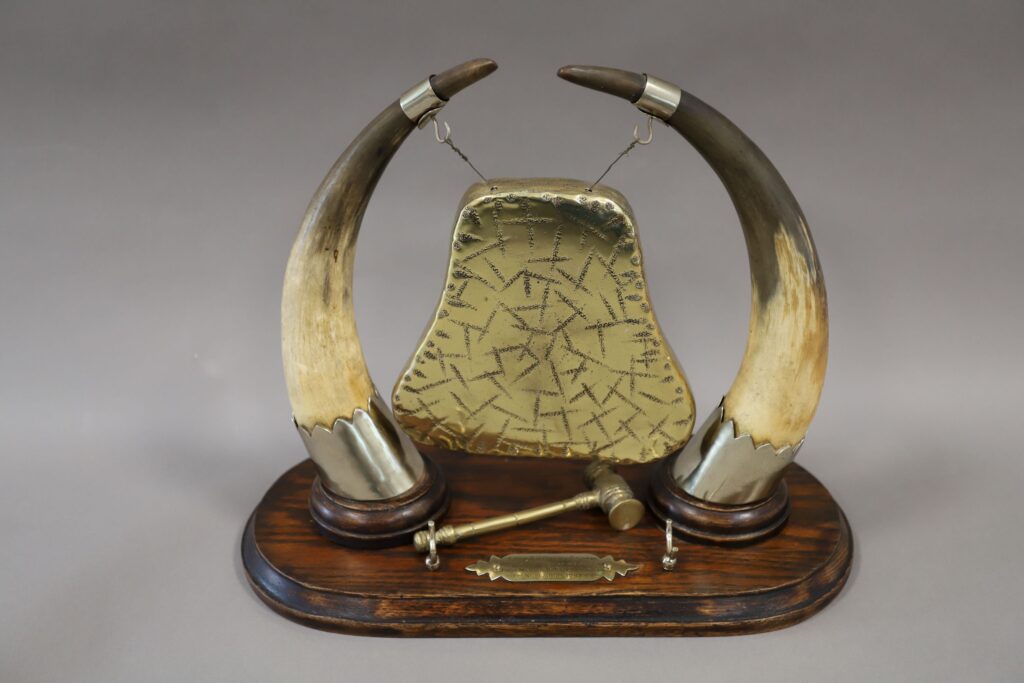Explore
Gong
Dinner Gong and hammer, large, with a wooden base, presented to Captain T H Brady-Browne, Newgrove House, Tulla, on the occasion of his marriage, November 1907.

Large, dinner gong, probably brass, suspended between two horns and with a brass hammer and an inscription panel fixed to the wooden base: ‘Capt T H Brady-Browne on the occasion of his marriage from Major and Mrs Cullinan November 1907’.
This item came from the homestead in Feakle of the donor, John Holohan, whose grandfather was an auctioneer and valuer, public works contractor and clerk of the Scariff Union. Its dates to the first half of the 20th century.
The donor is uncertain as to how this item came into his family collection, but it may be connected to his grandfather’s auctioneering activities.
Captain Thomas Henry Brady-Browne: (1882-1937) Newgrove, Tulla. He was the first son of Thomas Brady-Browne (of Newgrove) and Emily Perry (Fomerla, Tulla). He was born at Newgrove in 1882.
- His early career began with the Clare Artillery, when he became a Second Lieutenant at the age of 18, and a Lieutenant in 1903.
- In 1902 he was transferred from the Clare Artillery to the Fifth Irish Lancers.
- Soon after he travelled to South Africa and saw service in the Boer War. Following his return, he rejoined the Clare Artillery and was promoted to the rank of Captain in 1904. During this time Thomas also served as High Sheriff for County Clare in 1907.
- On 20 November 1907 Thomas married Mabel Mayne at St John’s Church, Longford. The celebrant was the Venerable William Moore, Archdeacon of Ardagh.
- Following the birth of two children, Thomas resigned his commission with the Royal Field Artillery in May 1913. Just over a year later however, he was back in uniform. Following the outbeak of hostilities with Germany, Thomas enlisted in the army as a temporary Captain, and served in France throughout the war, eventually resigning his commission in June 1919.
- Thomas died in April 1937 following a fall from his horse at the Clonmoney Point-to-Point races.
During the Victorian and Edwardian eras, it was often the custom in hotels, ships, and in large upper class houses to sound a dinner gong signal that a meal was about to be served.
Collection: John Holohan
Category: Communication Equipment